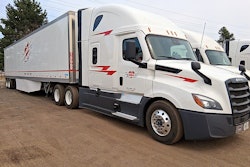Got one of those big round number birthdays coming along soon? When these milestone birthdays approach, our thoughts often turn to long-range plans, including retirement.
Everyone dreams, at least now and then, of early retirement. Don’t you often fantasize about what you would do if you could leave the daily grind behind? But the older we get, the more we are forced to really think about retirement. It seems daunting, but retirement planning need not be as painful as you think.
Retirement planning really begins with the personal financial statement. I am not talking about the statement you thoughtlessly slap together each year because your banker demands it. Those documents are practically useless for this purpose.
A sound personal financial statement should be organized in three asset categories and two debt categories. Think of assets as liquid, investment or personal. Debts are either on investment assets or on personal assets.
Liquid assets are bank accounts, money market accounts or the cash value of life insurance. Investment assets include stocks, bonds, mutual funds (after-tax savings), retirement accounts such as IRAs, 401(k)s (pre-tax savings) and ownership of business interests and commercial or residential real estate. Personal assets are homes, cars and toys – boats, gun collections, jewelry and so on.
Debts on investment assets should be detailed on the statement that correspond to the investment asset – and debt guarantees should be considered, too. Debts on personal assets include the first and second home mortgages, any car loans, credit cards, open notes and, usually, taxes that may be due. Subtract total debt from total assets, and the result is your net worth.
But net worth is deceiving. For the purposes of retirement planning, you can’t really count on liquid or personal assets. Liquid assets likely will erode in spending power due to inflation. And you almost never cash in on personal assets. True, your home appreciates in value, but you will always need one. You shouldn’t rely on the equity in your home to fund retirement.
Accept early on that investment assets will fund retirement. Your goal should be to beef up investment assets and not allow liquid and personal assets to drain all your available funds. And it is critical to develop a strategy and plan for shifting over time within the investment assets category so you can have access to cash monthly once you retire.
You likely will fund most of your retirement needs by cashing in some investment assets and obtaining income from others. Most retirees will, of course, receive Social Security payments in some amount, and many people expect to continue working part time after retirement.
If you are a business owner, your investment in your company is probably your largest investment asset. How can you cash it in? There is no easy or clear answer. You will need to spend considerable time and money over a five- to 10-year period to turn that investment into cash you can count on.
But your company should never represent all your investments. Retirement accounts are excellent investments, but they help only if you actually fund them with monthly deposits. This may sound painfully obvious, but you might be surprised how few business owners really pay attention to funding retirement accounts during the 20 or 30 years of daily struggles with building a company. Perhaps it’s easier for entrepreneurs to relate to hard assets and real estate. Or perhaps an unrealistic faith in the value of their businesses keep other investments from being a priority. Another investment owners often place too much faith in is life insurance.
You can see that planning for retirement requires more than a simple calculation of your net worth. Once you have pulled together a baseline personal financial statement, consult a CPA, financial planner or other trusted adviser. But it helps to enter those discussions with a honest assessment of your assets and debts.
Resources
“Investment Tax Planning for Retirement,” from the August 2003 Journal of Accountancy
covers numerous tax strategies for retirement. You can find it here.










